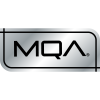I ........I'd like to pose the following:
1) What is the minimum requirement for an ISO 22000/HACCP internal auditor?
2) Is Microbiology a plus or a must?
I think it will take 4 years to study microbiology. 8 hours of internal training is not sufficient to help beginners become good, knowledgeable, competent auditors. Even some people, who were "trained" in approved ISO programs, are not always competent.
Let me illustrate 3 different people with different competence.
First Person: A person who posses a PhD or a degree, has excellent communication skills, but lacks the food safety knowledge.
Second Person: A person who doesn’t even have an associate degree yet have trainings and experience on food safety.
Third Person: Knowledgeable on ISO 9001 “process approach,” possesses excellent personality traits and can communicate effectively, but lack knowledge of microbiology and chemical hazards, and doesn’t hold a degree.
Please rank in order the above, from the most to the least competent auditor. Please state your reason for your choices. What is meant to be competent?
I am part of the internal audit team. I lack knowledge on microbiology and chemical hazards. Sadly, the company cannot send me to formal trainings. I am frustrated knowing that an industry/sector specific skills (terminology, process, technology practices) is vital in internal audit. Despite that I have been doing a lot of reading here. Plenty of materials on varied areas on food safety. My officemate who attended HACCP trainings provided by his previous company but cannot even conduct effective and useful audits. Another employee from R&D team who is a food tech graduate, a practitioner of GMP and HACCP, and conducting food safety trainings for her team, but still had to attend "formal" training because she could not prove she was "trained" even though she taught them.
I want to know experts thoughts on this. I really need to know if I am competent and qualified to be part of the internal audit team. If the yardstick of an effective internal audit is the auditor must be competent, then what competency really is? This leads me to ask another question "Can FSMS be judged effective or ineffective based on the competency of an auditor?"
1- "Can
FSMS be judged effective or ineffective based on the competency of an auditor?"
I must say that true judgement of effectiveness of
FSMS depends on combination of some "critical" factors and most important of them, IMO, is
competency of the internal auditor.
2- Internal audits in an organization is generally conducted by multiple teams. Since an organization usually have multiple functions like sales and marketing, purchasing, storage/warehousing, quality control, production, administration and maintenance. All these functions involve many sets of skills therefore it is impossible to have all similar set of skills in one or more auditors. Many small organizations even have no competent impartial person for auditing a particular function. This is no doubt a big challenge and even bigger for
FSMS auditing. To counter this challange I think fundamental trainning and awareness of cross-functions is very important. I have no formal qualification related to food industry but since 1997 when I joined a food industry I struggled to learn about many aspects of food industry like food safety hazards, pathogens, hazard analysis, food processing etc. Definitely after getting some knowledge of food processing and microbiology you can not stand parallel with a food technolgist or microbiologist but you may understand the commonly and frequently used terminologies and concepts. It is good to have a independent microbiologist for auditing a microbiological laboratory but it is an ideal condition for small or even for many medium-size organizations.
The conclusion is that awareness
or experience on food safety is the first most important competency of an internal auditor of FSMS. The second most important competency is awareness or expecience on management system including skills of internal auditing, good concept of process approach and PDCA approach. The third most important aspect is personal attributes (unbais, fair, ethical, open-minded, observant, perceptive, decisive etc). The most effective blend of these three competencies makes a competent internal auditor.
Regards:
M.Zeeshan





















